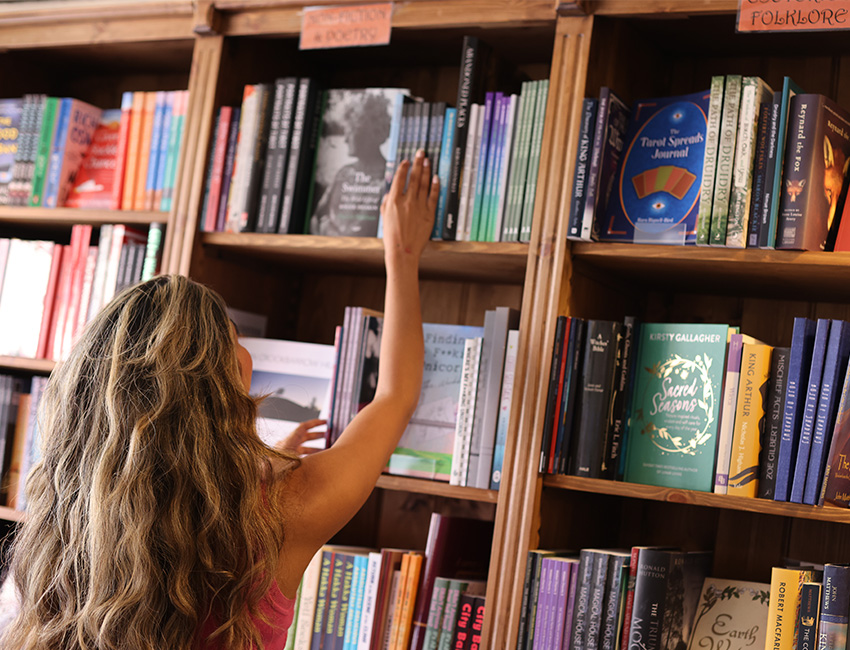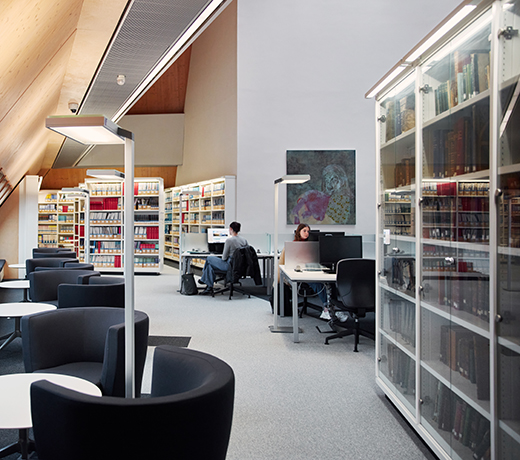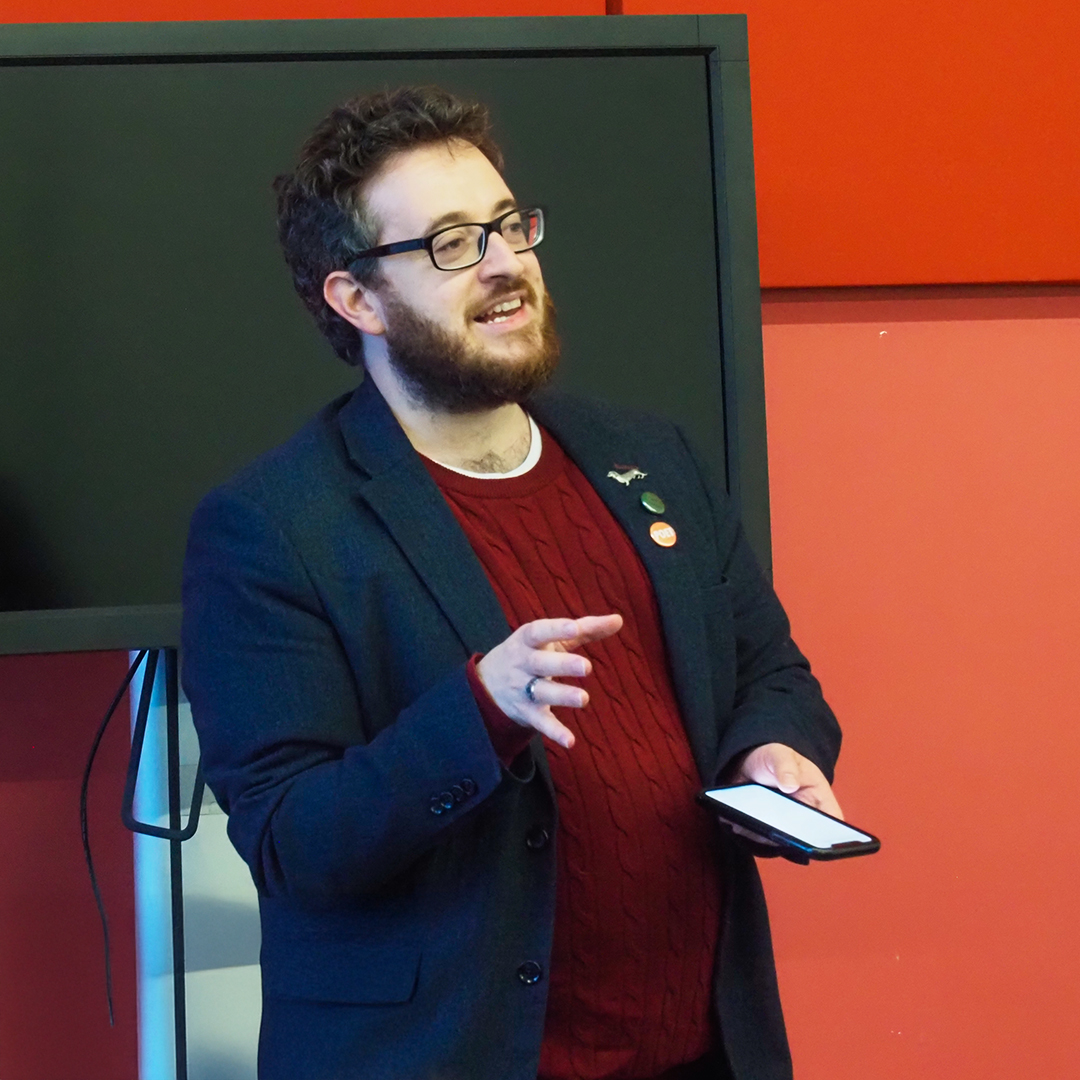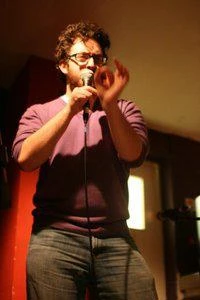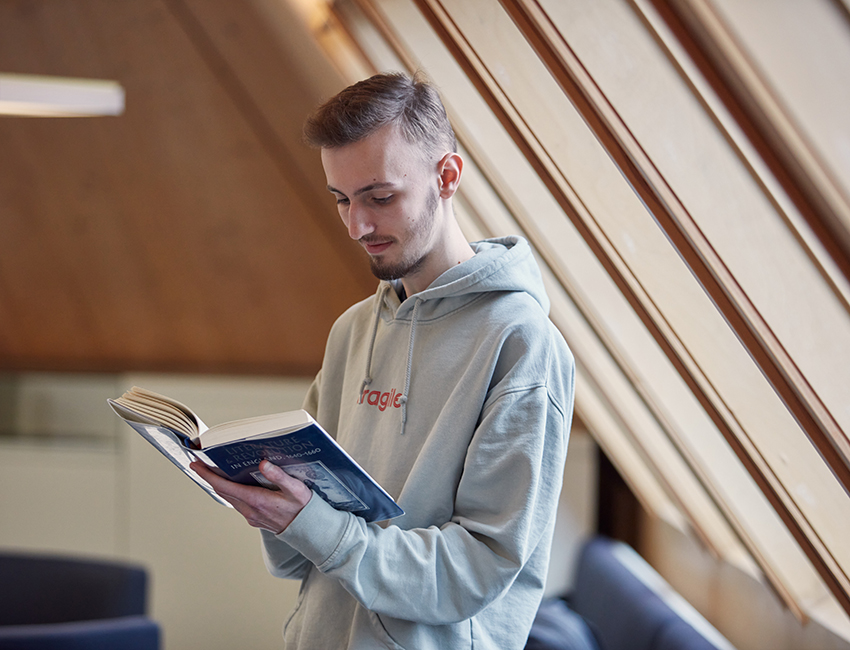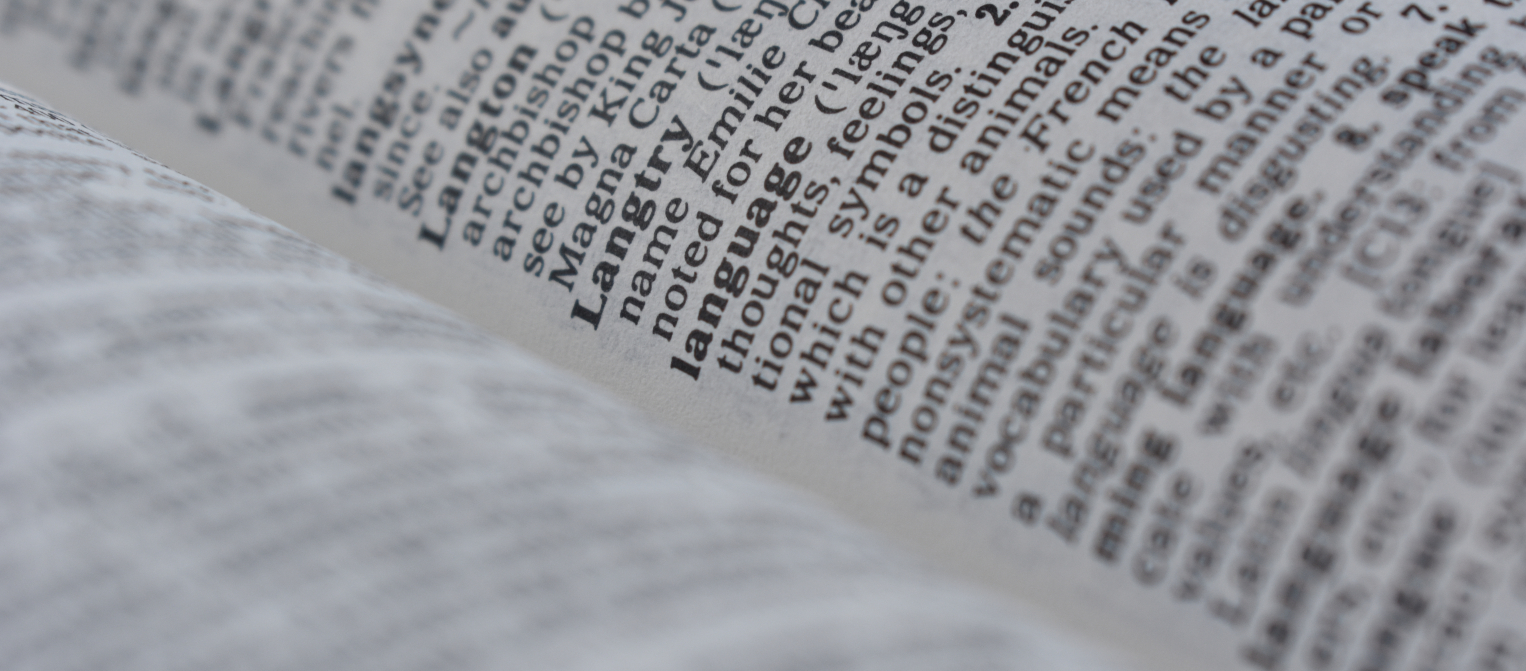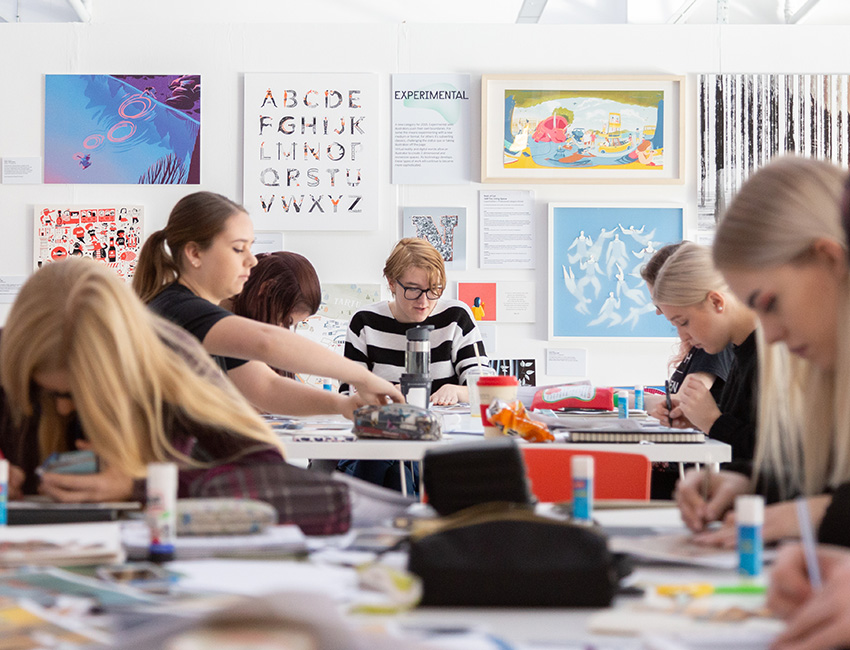Whether you're passionate about poetry, fiction, or literary theory, you’ll develop your literary voice. Workshops, lectures, and creative experiences will transform interests into valuable creative and professional skills for a wide range of careers.
of students said staff often make the subject engaging
for student satisfaction in Creative Writing
University of the Year finalist
Recognised for our graduate success, we’re shortlisted for University of the Year in the Times Higher Education Awards 2025.
Overview
Studying Creative Writing and English Literature at Worcester allows you to develop your skills as a writer while exploring literature from the sixteenth century to the present day. You'll explore how literature reflects, challenges, and influences society, analysing the techniques and approaches used by a range of authors whilst applying them to your own creative work.
The majority of your learning will take place in small group seminars, meaning you’ll have plenty of opportunities to get to know your fellow students through close-reading activities and writing workshops. From your very first week, you’ll be able to network and continue doing so throughout your degree.
You will also have the opportunity to participate in local and regional literature festivals, attend book discussions and open mic nights, and engage with Worcester’s vibrant literary community. You may also represent the University at national events such as UniSlam and take part in the Verve Poetry Festival. These experiences will support your creative development and help you build professional networks across the country.
In your final year, you will undertake either a creative writing project or a literary dissertation, allowing you to take your interests further with a topic or genre of your choice. Our students have received recognition for the quality of their writing, with Creative Writing projects eligible for the Black Pear Press Prize for Fiction and the V. Press Prize for Poetry, and Literature dissertations considered for the Early Modern Research Group Prize for Interdisciplinary Research.
You’ll study in – and explore the literary heritage of – an ancient Cathedral city steeped in history, having been the location of the final battle of the English Civil War. Our students benefit from research trips to the Cathedral Library, with its priceless collection of rare books and manuscripts, as well as the twelve miles of archives stored within our University library, The Hive.
Work Experience
As you progress through the course, you’ll become an increasingly adept reader, writer and researcher. You’ll have lots of opportunities during your time at Worcester to apply what you’ve learned in a professional context and explore your future career options.
We offer an optional work experience placement module in Year Two, enabling you to complete a short voluntary placement with a local organisation. Past work experience locations have included schools, marketing agencies, local arts and heritage organisations, and The Hive Library.
Creative Writing at Worcester
Course content
Each year you will study a mix of mandatory and optional modules. Our diverse curriculum, taught by active writers and researchers, will allow you to explore many different literary themes and eras before you choose your dissertation specialism in Year Three.
We regularly review our courses to reflect the latest research and developments in the subject area, as well as feedback from students, employers and the wider sector. As a result, modules may change to ensure the course remains current and relevant. Optional modules will run if enough students choose to study them. It is not guaranteed that all modules will be offered every year.
Careers
Our course has been created with your employability in mind, equipping you with the skills and confidence to be successful in wide range of careers. You’ll graduate with skills in writing, editing, research, and communication skills, which are highly valued across many industries.
A degree in Creative and Professional Writing and English Literature could be your first step toward a career as a:
- Digital copywriter
- Freelance writer
- Editorial assistant
- Content strategist
- Publishing professional
- Communications officer
- Marketing executive
- Teacher (including TEFL and Secondary English)
- Researcher or academic
Opportunities to progress
Many of our graduates choose to continue their studies with a postgraduate qualification. Popular options include:
You’ll also benefit from a strong focus on employability throughout the course, including the chance to gain real-world experience through our optional work project module. We also encourage students to broaden their horizons by studying abroad for a semester.
Course highlights
Teaching and assessment
Teaching is a mix of interactive seminars, lectures, one-to-one tutorials and workshops. Our modules give you the opportunity to combine your own development as a writer with academic study of literary texts in English.
Teaching and assessment contents
You will be taught through a combination of lectures, seminars, interactive workshops, individual tuition, research trips, and film screenings. Workshops and seminars encourage discussion, peer feedback, and practical exercises, often in small groups. All learning is supported by online platforms where you can access materials and resources.
You will also gain employability skills through work-based learning, particularly in the Year 2 Work Project module, which offers valuable professional experience.
You will be assigned a Personal Academic Tutor, with scheduled meetings at least four times in the first year and three times in subsequent years to support your academic development.
Meet the team
A small selection of the Humanities lecturers who teach on this course.
Entry requirements
UCAS tariff points required: 104
| Qualification | Grade |
|---|---|
| A-level | BCC |
| BTEC National Extended Diploma | DMM |
| T-level | Merit |
We do accept Access to HE Diplomas and other qualifications which may not exactly match the combinations above. Work out your estimated points with the UCAS tariff calculator.
Any questions?
If you have any questions about entry requirements, please call our Admissions Office on 01905 855111 or email admissions@worc.ac.uk.
Fees
Fees contents
UK and EU students
In 2026/27 the standard fee for full-time home and EU undergraduate students on BA/BSc/LLB degrees and FdA/FdSc degrees is £9,790 per year.
Tuition fees are reviewed annually and may increase each year for both new and continuing students.
For more details on course fees, please visit our course fees page.
International students
In 2026/27 the standard tuition fee for full-time international students enrolling on BA/BSc/LLB degrees and FdA/FdSc degrees is £17,200 per year.
Tuition fees are reviewed annually and may increase each year for both new and continuing students.
For more details on course fees, please visit our course fees page.
How to apply
How to apply contents
Applying through UCAS
UCAS is the central organisation through which applications are processed for full-time undergraduate courses in the UK.
Read our how to apply pages for more information on the application process, or if you’d like to apply for part-time study.
Creative Writing and English Literature BA (Hons) - WQ82
Contact
If you have any questions, please get in touch. We're here to help you every step of the way.
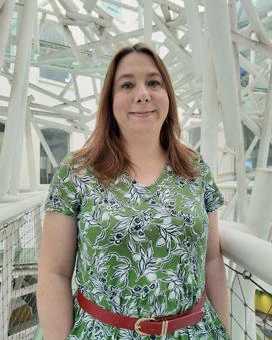
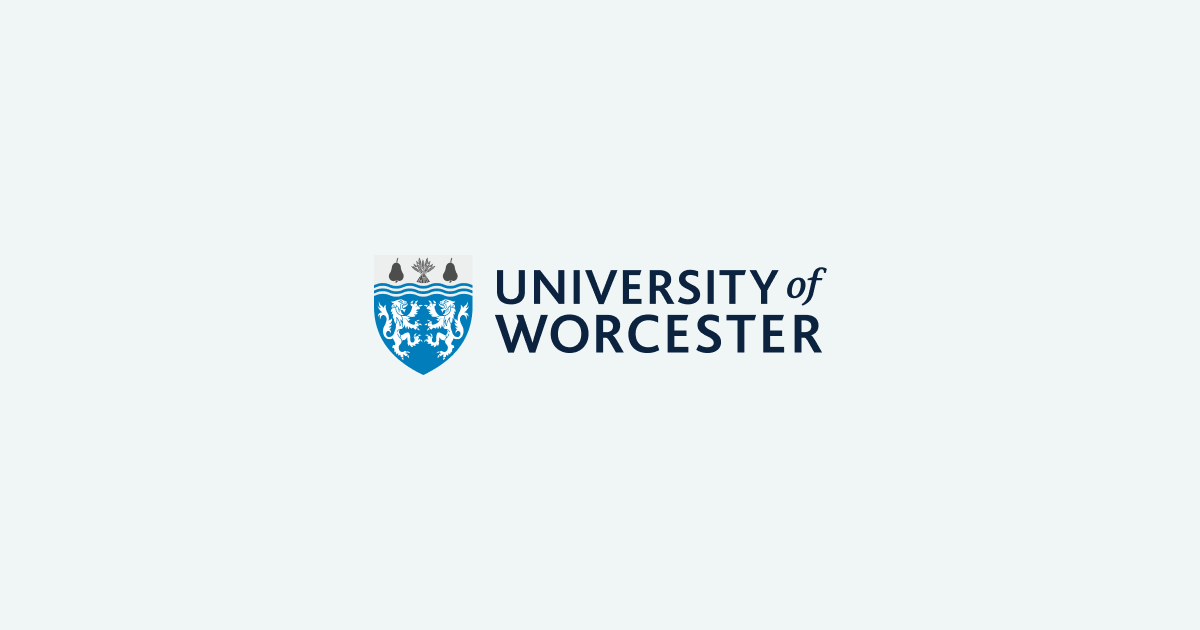
Admissions Office
admissions@worc.ac.uk01905 855111More to explore
Open Days
Visiting us is the best way to get a feel for student life at the University of Worcester.

The City of Worcester
Worcester is a welcoming university city with great transport links and plenty of student parking.

Accommodation
Benefit from our accommodation guarantee. We have rooms on campus to suit every budget including en-suite options.

